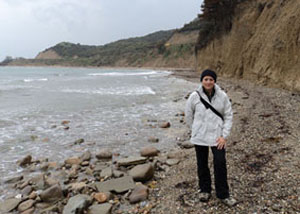
Rachel Sturges
AUCKLAND (Te Waha Nui Online/Pacific Media Watch): Every year, news coverage of Anzac Day is getting older and staler, says award-winning UK journalist Sharon Mascall.
Mascall, based in Australia, is writing a PhD thesis about how Anzac Day is covered by journalists.
She has interviewed more than 30 journalists who have covered Anzac Day in the past 10 years.
She says her analysis showed journalists investigated their material in “that old fashioned newsroom way of doing things”.
They need to spend time with the people whose story they are telling and not just regurgitate information from the internet and news wires, she says.
“You sit there at the computer screen and basically massage and rewrite and process the information. You’re processing other people’s data to make sense of it in some way.”
She says this means Anzac Day stories are repetitive and clichéd, as journalists, particularly young and inexperienced ones, struggle to find new ways to report the day.
Biggest story
“It’s the story. The biggest story Australia covers every year without fail,” she says.
“It’s important, multifaceted, complex and significant. Australians believe their identity is grounded in this national event and how it’s commemorated and re-told. We’ve got to get that right.”
Edward Rooney, chief reporter at The Aucklander, agrees original Anzac Day stories are becoming more difficult to write.
“I am increasingly frustrated by stories which are interviews with veterans who say, ‘It was a terrible bloody mess’. I’ve seen that so many times.
“There should be other ways of doing it. Some of the reporting is dropping away now the old diggers have gone,” he says.
If journalists aren’t writing about veterans, they are “raking over historical information and writing lengthy historical accounts which are pretty tough for the reader”.
Rooney recently wrote Going over the top, a moving story about an Auckland scout troop which re-enacted the Gallipoli landing with their scout leader.
Threading history
He says when he saw the chance to write the story he “grabbed it with both hands”.
It was “a chance to thread history through the story”, he says.
Rooney agrees young journalists find it difficult to write about Anzac Day because they feel they have no experience of war. He solved this by asking young journalists at The Aucklander to reflect upon their own indirect experience of war.
In Four stories our mothers (and grandfathers) never told us, they wrote some “magnificent pieces”, he says.
One young man wrote about spending the night in a trench which he had dug with his history class in the Hauraki Plains and another young woman wrote about being a descendant of a German teacher and the discrimination she faced growing up in France.
He says he is trying to find the right place, the right story, which will “explain the significance and make someone feel, when they’re at a service, that they feel part of it”, he says.



